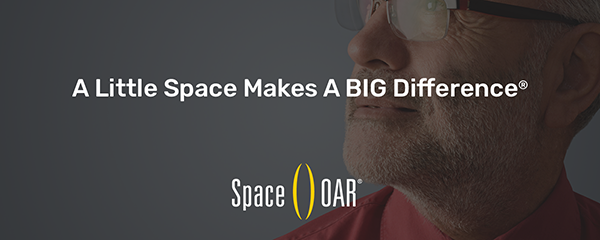| DEALFLOWUPDATE Issue #17. Friday, September 14 Hello everyone, For this edition of our newsletter, we’ll be reviewing and including our usual deals section, this time with a theme of noninvasive medical diagnostics and the nature of what we call “major innovation.” A central part of our investment metrics is that we only invest in medical devices that are at least a 10 times improvement on current methods. This ensures that competition does not have time to catch up, and, because the economic and health value is clear, adoption by the market will take place. However, it may seem logical that such a scale of innovation might mean that technology of this nature will take a long time to prove and get through the FDA regulatory process. What we have shown in our current portfolio and upcoming pipeline, though, is that there are ways to develop major innovations in medical devices without having to go through the most stringent regulatory pathways. For example, devices can go through accelerated pathways, such as the FDA’s Expedited Approval Process, or use predicate devices that already exist but in noninvasive ways that reduce clinical trial risk and time. We’ve provided examples within our following Dealflow section. -Neal P.S. Our readership continues to grow! please subscribe if you’re new and continue to share with others on social media. Connect with us, we would love to hear from you! Dealflow  AI Technology That Looks For Signals In Electrocardiograms An example of noninvasive medical diagnostics and what we call a “major innovation”, is a technology that can detect a dangerous blood condition through heart signals that was recently designated by the FDA as “breakthrough,” and thus making the regulatory process faster. This status is granted, for example, when the issue being addressed is critical and yet has no good current solution. Read More  Improving Prostate Cancer Detection Using AI We see a faster regulatory path in general with diagnostics, and specifically noninvasive ones. This is because the risk to patients is low and yet the benefits can be high. There are many companies using machine learning and AI to improve existing imaging techniques including those seeking to improve the detection of cancer. As stated before, in order to meet our metrics, such a technology needs to have some unique hardware component to maximize IP protection. Read More  CHF Solutions Buys Vasamed’s AcQtrac Furthermore, we see quite a few innovations in the area of noninvasive diagnostics that use impedance as a mechanism of action. For example, there was a recent acquisition of a company using impedance to measure cardiac and hemodynamic parameters. Impedance is quite interesting as many aspects of human biology either produce or have an impedance signal, from molecular targets such as DNA and proteins, to heart and blood flow. Read More  InfoBionic Raises Another $50M For Wireless Remote Cardiac Monitor Another example of a cardiac monitor that is also noninvasive and designed for home use shows that systems that allow constant, real-time diagnosis of patients outside the hospital are still a growing trend, especially with earlier and more frequent discharges from acute care settings. Read More  Boston Scientific Acquires Augmenix For Up To $600M And finally, another interest area in diagnostics is tracking and monitoring the progress of medication. This is important in cases such as mental health or cancer therapy, since individuals respond very differently to medications and treatments. Read More Spotlight  #Zoic We are excited to announce that Ajay Kaul has joined us at Zoic Capital as Operating Partner. Ajay brings with him broad CFO skills – Investment Management, Investor Relations, Fund Raising, Financial Analysis and Planning, M&A, Divestitures, Cost Cutting, International Business. Ajay is the personification of what management professionals mean when they discuss mentorship. ReadMore  #CompanyHighlight Congratulations to Optina Diagnostics and their new partnership with DIAGNOS. “The partnership will greatly accelerate Optina’s commercialization of its Alzheimer diagnostic test, saving critical time to market while providing effective and efficient user experience.” said David Lapointe, President and CEO of Optina. DIAGNOS is a leader in early detection of critical health issues through the use of Artificial Intelligence (AI), and will provide a telemedicine platform based on CARA (Computer Assisted Retina Analysis) to Optina Diagnostics for a period of 3 years. Read More ShareTweetForward What We’re ReadingTV Talking About The New Apple Watch’s FDA Clearance PB Uber’s CEO On His First Year FUT Diabetes Patients Are Hacking Together The Tech They Need FT Why Big Companies Squander Good Ideas Connect With Zoic CapitalThe Biweekly Dealflow Update, curated by the team at Zoic Capital. |

Blog
Investing in Medical Devices With At Least 10 Times Improvement
© 2026 Zoic Capital.
Close Menu
Contact Us
113 Cherry St.
PMB 2981
Seattle, WA 98104-2205
E: hello [at] zoiccapital.com

